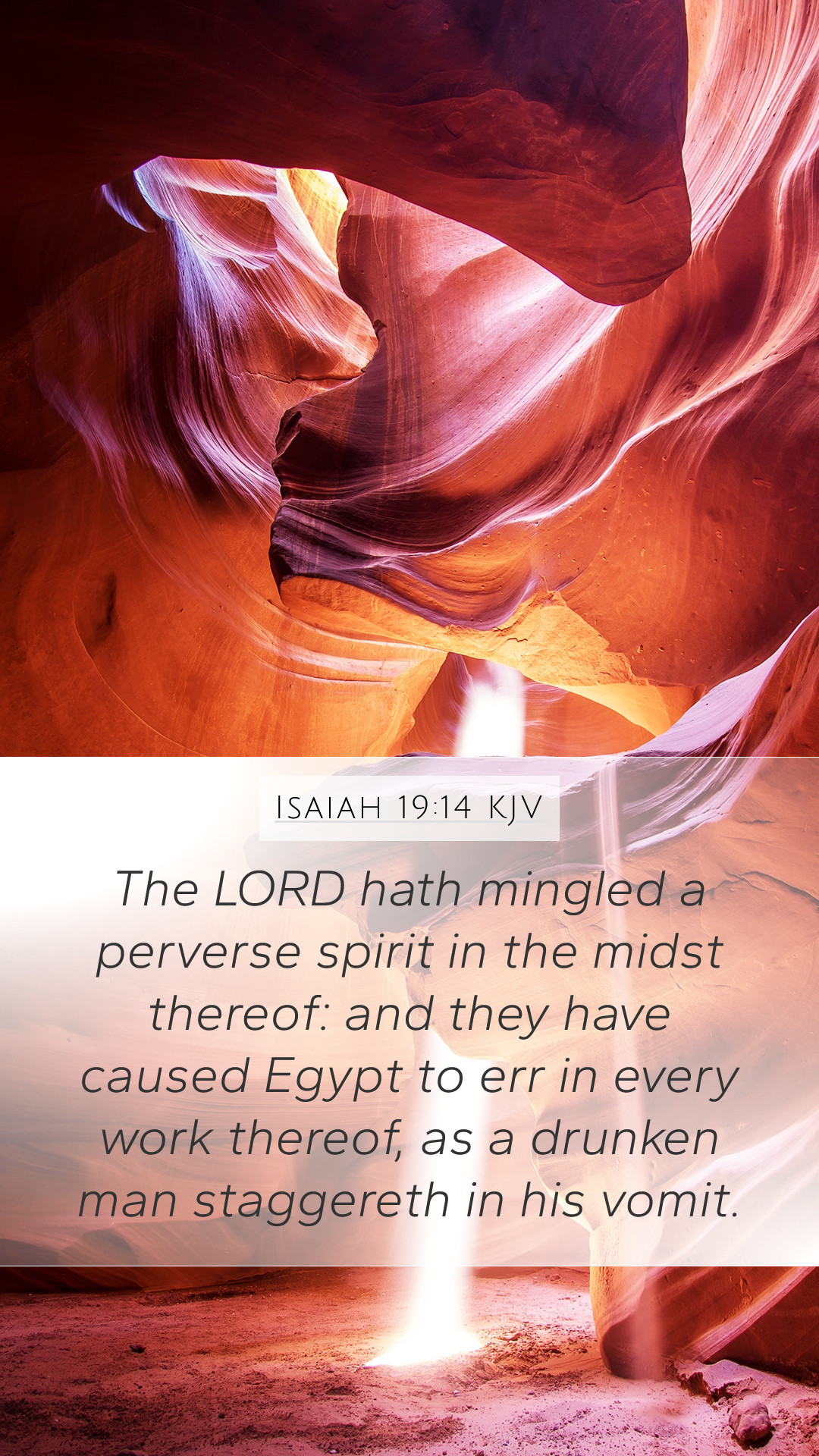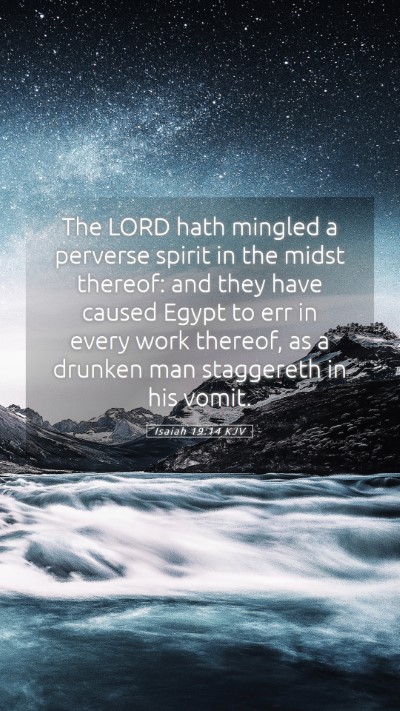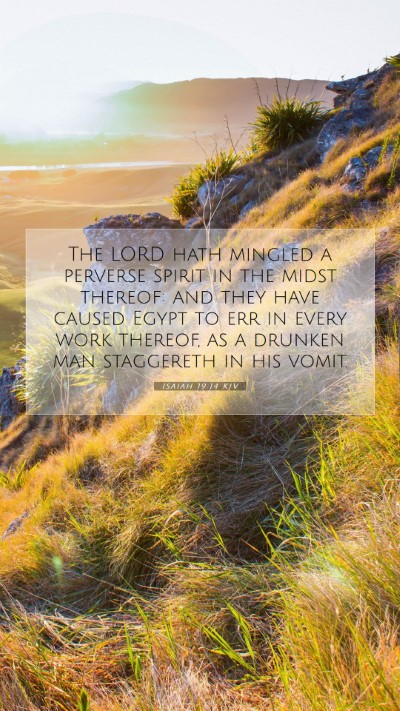Understanding Isaiah 19:14 - A Comprehensive Bible Verse Commentary
Isaiah 19:14: "The Lord has mingled a perverse spirit in the midst thereof; and they have caused Egypt to err in every work thereof, as a drunken man staggereth in his vomit."
Overview of the Verse
This verse from the Book of Isaiah highlights God's judgment upon Egypt, portraying their moral and spiritual confusion as a result of divine intervention. Isaiah emphasizes that a "perverse spirit" has influenced Egypt, leading them astray in all their endeavors. This imagery likens the people’s disorientation to a drunkard who stumbles in his own mess, illustrating the severity of their condition.
Historical Context
To fully understand this verse, it's vital to consider the historical backdrop of the late 8th century BC. At this time, Egypt was a significant power in the region, frequently at odds with Israel and Judah. Isaiah, a prophet active during the reigns of several kings, delivers messages of both warning and hope. The reference to Egypt serves as a reminder of the consequences of turning away from God—a theme prevalent throughout the prophetic literature.
Commentary Insights
Matthew Henry's Perspective
Matthew Henry notes that the 'perverse spirit' reflects not just individual folly but a collective moral failing. The Egyptians, once renowned for their wisdom, became utterly confused, losing direction in both governance and daily life. This commentary underscores the principle that when nations forsake God, chaos ensues, manifesting in leadership failures and societal disintegration.
Albert Barnes' Interpretation
Albert Barnes emphasizes the phrase "mingled a perverse spirit," suggesting that God actively introduces confusion into the minds of the Egyptians as a punishment for their idolatry and misplaced trust in foreign powers. Barnes articulates that this disorientation serves divine purposes, ultimately leading to a recognition of God's sovereignty and judgment.
Adam Clarke's Analysis
Adam Clarke provides a vivid depiction of the effects of this spirit upon the Egyptians, likening their state to that of a man inebriated and disoriented. He draws attention to the futility of their efforts, arguing that without divine guidance and wisdom, no human endeavor can succeed. Clarke urges readers to recognize the grace of God as essential for clarity and purpose in life.
Theological Implications
This verse not only serves as a historical account but also as a reminder of the broader theological concepts of divine judgment, human folly, and the necessity of relying on God for understanding and direction. The 'perverse spirit' symbolizes the consequences of straying from divine wisdom and the ultimate futility of human efforts devoid of God’s influence.
Applications of the Verse
For contemporary readers, Isaiah 19:14 poses several important lessons:
- Recognizing Human Limits: The Egyptians' plight underscores that human wisdom is inadequate without divine insight.
- Seeking Divine Guidance: Like the Egyptians, we are prone to confusion and error without seeking God’s direction in our lives.
- Understanding the Consequences of Sin: This verse serves as a warning about turning away from God and the resulting chaos that follows.
- Observing Historical Patterns: This account can prompt reflection on similar patterns in contemporary society where values falter and confusion reigns.
Cross References
This verse correlates with other biblical passages that illustrate themes of confusion and divine judgment:
- Isaiah 29:10: "For the Lord has poured out upon you the spirit of deep sleep..."
- Jeremiah 51:7: "Babylon was a golden cup in the Lord's hand..."
- Ecclesiastes 10:15: "The labor of the foolish wearieth every one of them..."
Conclusion
Isaiah 19:14 is a profound verse that invites deep reflection on the nature of divine judgment and human error. Through the insights gleaned from noted commentators such as Matthew Henry, Albert Barnes, and Adam Clarke, we can gain a richer understanding of its implications. This verse challenges us to consider our dependence on God for wisdom and the importance of aligning our lives with divine purposes, ultimately leading us to a more informed perspective on Scripture.
For those engaging in Bible study groups, this verse offers fertile ground for discussion on the consequences of spiritual neglect and the importance of understanding Scripture in its full context. Utilizing Bible study tools and guides can enhance your journey through such complex passages, allowing for deeper biblical exegesis and meaningful application in daily life.


